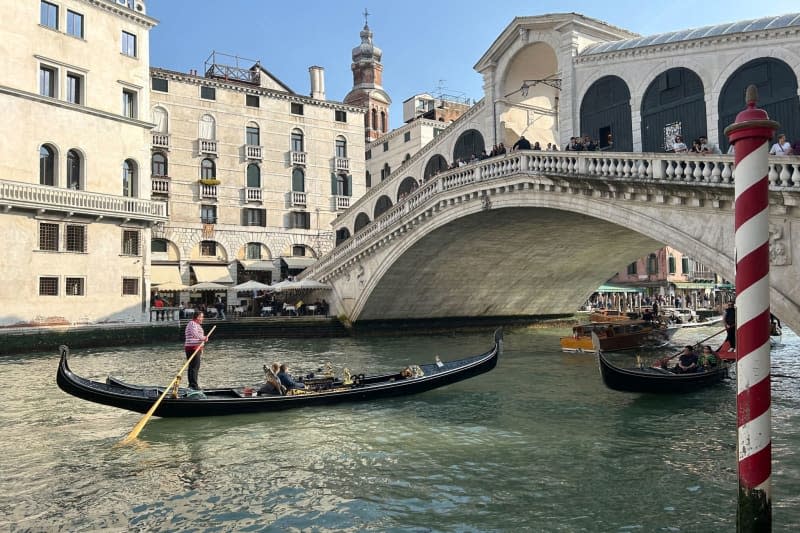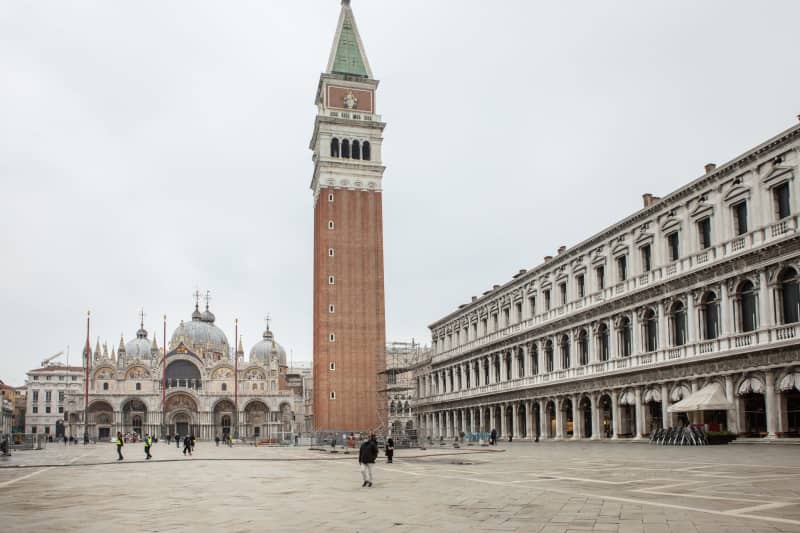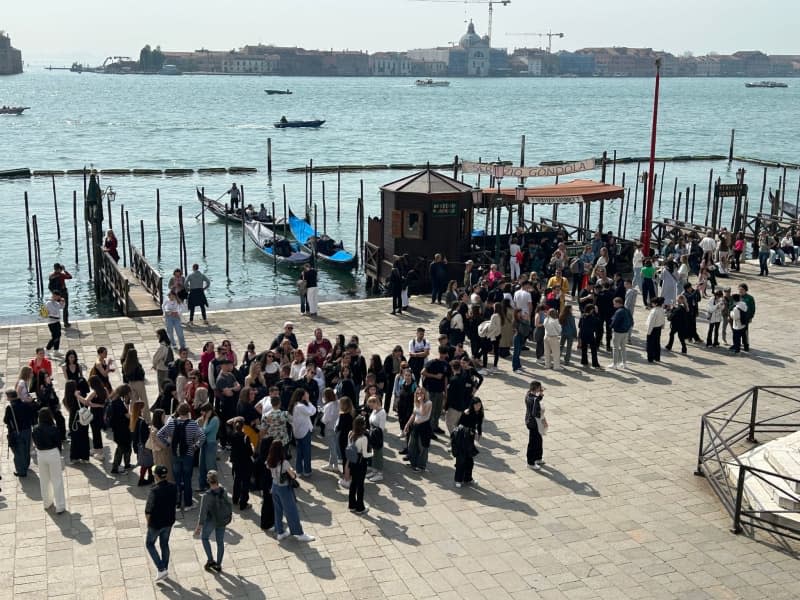A city becomes a museum: Venice begins charging tourists €5 entry

The idea is anything but original. How many times over the last hundred years has a visitor to one of the many canals in Venice come to the realisation that this entire city is basically one big museum?
Now this city has officially reached that state, it would seem.
Tourists wishing to visit the Italian city of Venice now have to pay an entry fee for the first time, as a trial aiming to limit numbers of day trippers at peak times started on Thursday.
Day visitors will have to pay a €5 ($5.30) access fee between 8:30 am and 4 pm unless exempt. Residents of the Veneto region, people who work, study or were born in Venice and anyone who has booked accommodation in the city will be exempt from the requirement to buy a ticket.
Children under 14 will also be among those exempted. In some cases an exemption voucher is required. Failure to pay the admission ticket can result in a fine of €50 to €300.
The trial will initially run until May 5 and then nearly every weekend until mid-July, for a total of 29 days this year. A decision will then be made by the end of the year as to whether this will become a permanent arrangement.
A solution to mass tourism?
The flow of visitors from all over the world brings a lot of money into the coffers of the tourist hotspot. However, mass tourism has also been causing problems for Venice - one of the most famous tourist destinations in the world - for some time.
The historic centre with the famous Piazza San Marco, the Rialto Bridge and the many canals now has less than 50,000 permanent residents.
In the high season, there are more than twice as many tourists on some days. According to the city council, the revenue will later be used to renovate canals, roads and buildings.
Visitors in Venice see how much the onslaught is taking its toll on some of the buildings.
This is far more than just the charming decay of old buildings. On Wednesday, it became known that even the St Mark's Tower is crumbling: Recently, small pieces of the reinforced concrete cladding have been falling from the almost 100-metre-high landmark. Fortunately, no one has been injured so far.
On some days, more than 100,000 tourists visit the city. All in all, roughly 15 million people passed through Venice last year.
The worst reputation is earned by cruise tourists with name tags, guided through city in herds, as well as daytrippers who leave before spending much money.
"They come by train from the mainland in the morning, carrying a water bottle and sandwiches in their rucksacks. That's enough to keep them going until the evening," gondolier Andrea Gianello complains.
"All we have from them is their rubbish."
Criticized by businesses and many locals
The fee is not very popular with hotel owners because it creates additional work, while other business owners say it's nothing more than a "harassment" of tourists.
Initiatives led by business owners and citizens had been trying to stop the project for years.
Former mayor Massimo Cacciari slammed the fee as a "a tax from the Middle Ages."
"Only crazy people can imagine that they can bring Venice back to life by taxing travellers passing through."
However criticism has had little effect so far, and there was a clear majority in the city council in late 2023, also due to the fact, at that time, that UNESCO was on the verge of putting Venice on the Red List of "World Heritage in Danger".
Mayor Luigi Brugnaro's tourist fee was only just about able to prevent the city being branded as in danger, with all the reputational damage that would entail for the city.
Now the centre-right politician assures that the fee is "not about making money. The campaign costs more than we earn. The primary goal is to protect the city and make it liveable again."
When doing the maths, experts also came to the conclusion that the expected revenue is just enough to finance the necessary infrastructure and checks.
There would be nothing left over to renovate sewers, roads and buildings with the money as promised.
In addition, many are sceptical as to whether the "Venice ticket" will actually achieve anything. In a city with sometimes crazy prices, why should anyone be put off by €5?
In the "Caffè Florian" on St Mark's Square, a cappuccino now costs €12. The evening rate for a half-hour gondola ride is €110.
"This city is already making me poor," says Ronnie Breuer, visiting Venice after travelling from Germany with his family. "Five euros doesn't make much of a difference at this point."
Higher prices next year?
Officially, everything so far is just a trial, and there are no dates for entry fees beyond July 14 yet.
But hardly anyone expects that the fee will be cancelled if tourists are paying it. It is more likely that money will be charged on more than 29 days in future, and then possibly staggered according to tourist volume.
Mayor Brugnaro has already suggested this as one option: "At the end of the year, we will take stock and adjust our target by perhaps raising the prices for the most frequently booked dates."
Perhaps Venice will then no longer charge €5, but €10, €20 or more - just like other big museums.



